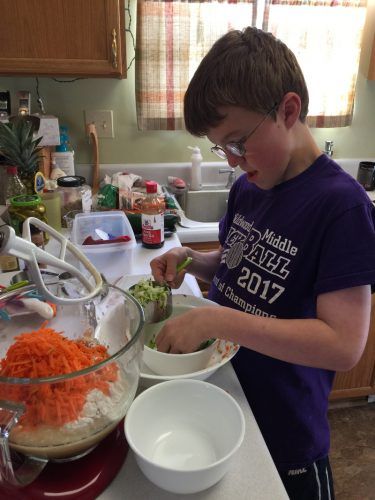Spotlight on Cooking Independently!

Use the Code CSNK2A1 at check out and Color Coded Chef will donate 10% of proceeds to CSNK2A1 Foundation.
Happy cooking! Happy eating! Happy, independent children!
As a parent, I’d gathered as much information as possible, navigating appointments, prioritizing different pieces of expertise, and sometimes struggling with information overload. After the flurry of tests and doctor visits, I had one clear desire: to help my son achieve the happiest, most independent life possible.
Always taking an active role in his development meant looking outside the scheduled meetings and activities for additional possibilities for him.
Cooking is an activity that is filled with possibilities: enjoying good meals, a sense of accomplishment, shared fellowship, and control over our nutrition. Plus, cooking involves many important skills—skills I wanted my son to learn.
Because of my son’s unique needs, I couldn’t count on the standard cooking utensils. However, I could envision tools that wouldn’t be so limited.
My son has felt a surge of pride at making food so delicious people take second helpings. He has contributed to the nourishment and enjoyment of our family. He loves it when his food appears on the table and everyone comments on how good it tastes.
As I embarked on this journey, I shared my vision and the response was nothing short of overwhelmingly positive, from people from many backgrounds and circumstances. I realized that so many people are left out of the way our society teaches and approaches cooking.
From young children who want to safely learn cooking to caregivers of people struggling with dementia, The Color-Coded Chef rescues the art of cooking from the constraints of reading, cognitive abilities, fine motor skills, math, steady hands, and the many other unnecessary limitations.
No matter what their situation, everyone enjoys of sharing meals with their loved ones. At The Color-Coded Chef, we are proud to help make that possible.”
